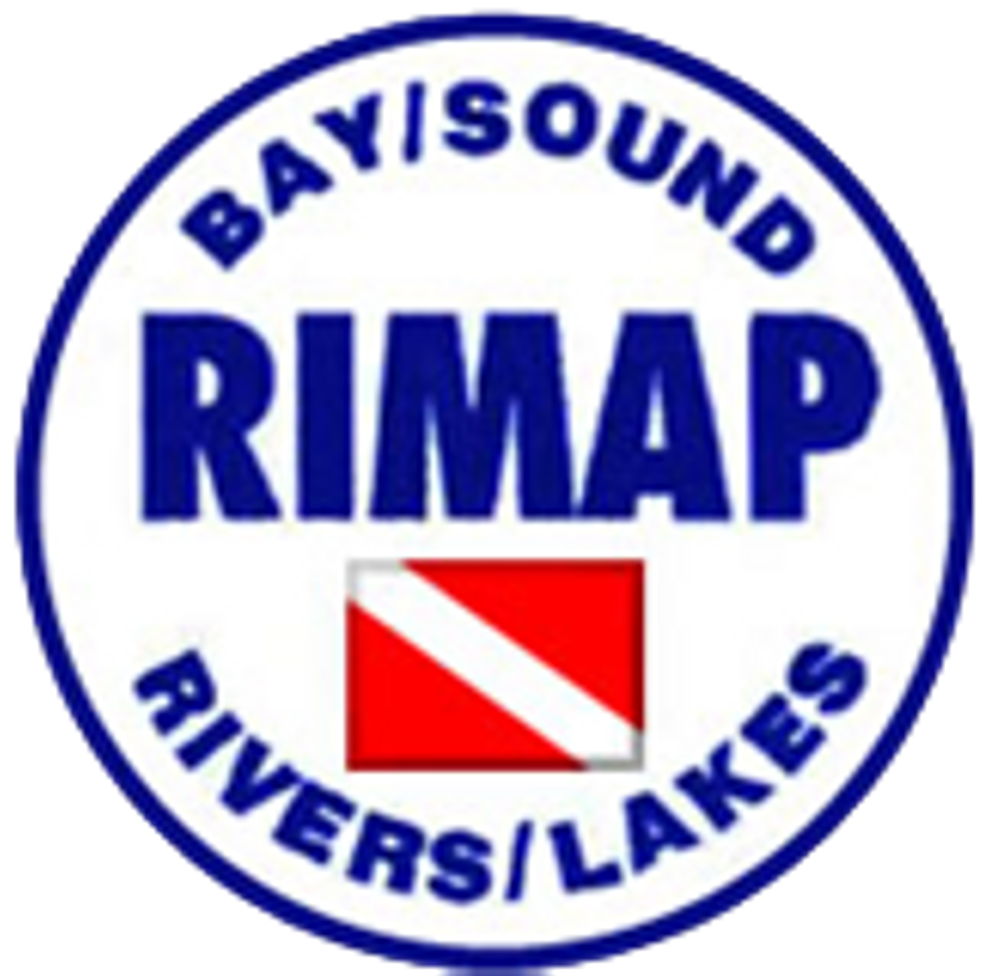HOW TO VOLUNTEER
© RIMAP 2021
Any member of the public interested in maritime history or marine archaeology is welcome to participate as a RIMAP volunteer and we welcome everybody, BUT, they must complete RIMAP’S "Introduction to Marine Archaeology" class first. This class is held usually in the spring, but if we have sufficient numbers, we can run it at other times. If you wish to dive, there are a few extra steps you will need to take. All volunteers participate at their own expense, and if diving, this will include scuba gear, but RIMAP provides all administrative support and required fieldwork equipment.
RIMAP's Revolutionary War British Transport Study and the Search for the Lord Sandwich ex Endeavour® in Newport's Outer Harbor. Photo by Greg DeAscentis. © RIMAP 2016.
RIMAP's underwater fieldwork includes shallow-water projects that require only the use of a snorkel. RIMAP's underwater fieldwork projects that require basic scuba equipment are generally limited to depths less than 60 feet. RIMAP does not conduct research on projects that require technical diving skills and equipment. Most RIMAP fieldwork takes place in the warm months, but dry suit equipped divers may participate in RIMAP's limited winter activities. Non-divers will be accepted as assistants for diving teams on a space-available basis.
Non-diving fieldwork projects include sites accessible in shallow water but that don't require a snorkel or scuba gear. RIMAP also studies the usually overlooked, but also important, near-shore and inland sites related to the maritime industries, labor, and capital that supported the ships that sailed (or were lost) in local waters. Non-fieldwork activities include historical and archival research, post-processing of data, and artifact management.
RIMAP's "Not the Gaspee" Project. Unidentified ship (RI 2218) on Greene Island in Occupessatuxet Cove in Warwick. Photo by Joe McNamara. © RIMAP 2015.
The requirements for general RIMAP participation are:
All volunteers must be current RIMAP members.
All volunteers must complete RIMAP's "Introduction to Marine Archaeology" class. This is a general survey of what the profession is about, and it introduces potential volunteers to RIMAP's past projects and future plans.
Advanced RIMAP classes are recommended for volunteers who participate in selected research projects.
All volunteers must complete the RIMAP medical form.
All volunteers must sign the RIMAP Liability Release.
All volunteers must sign the Confidentiality Statement. Note: Volunteers are not allowed to publish or electronically distribute any reports, articles, photographs, videos, or other intellectual property created by participation in RIMAP training or research projects. Permission for such activities will be considered individually. Other media access is carefully controlled.
And all volunteers must accept and abide by professional archaeological ethics.
Requirements for RIMAP diving participation are:
RIMAP requires diving volunteers to have at least basic Open Water certification by an accredited organization.
RIMAP diving volunteers must bring their own gear that is in good working order.
Some projects RIMAP may require DAN insurance.
RIMAP diving volunteers must also complete one check-out dive to demonstrate their physical condition, skill level and experience before being assigned to a team
For fieldwork conducted from the RIMAP research vessel, diving and non-diving volunteers are encouraged to complete an approved safe boating course, sponsored by the US Coast Guard Auxiliary, the Power Squadron, or RI Department of Environmental Management.
Fieldwork is weather dependent, but RIMAP's indoor activities depend on resource and team availability.
Qualified RIMAP volunteers receive by email and snail mail special notices of fieldwork and other research schedules, including the application to participate. Once a volunteer is assigned to a team, confirmation of special instructions follow, with final confirmation 2-3 days before each research session (to determine weather and finalize other details).
At the RIMAP Annual Meeting, all volunteers for the previous year are recognized with a RIMAP patch.
If you are interested in volunteering, please complete the volunteer interest form below. This is the first step of a short process, and we will get back to you. This is not a member application form. To join RIMAP, please click this link.



